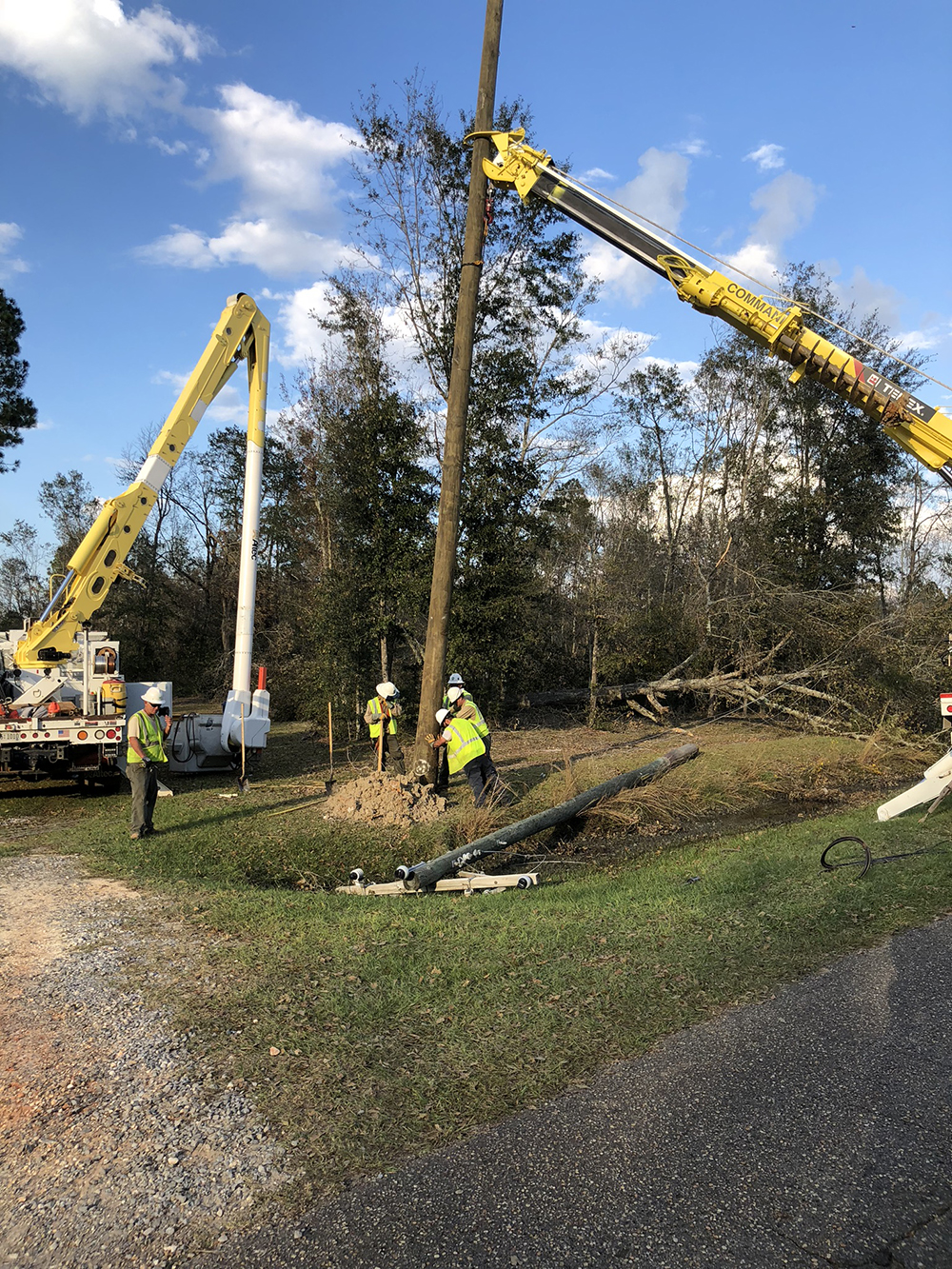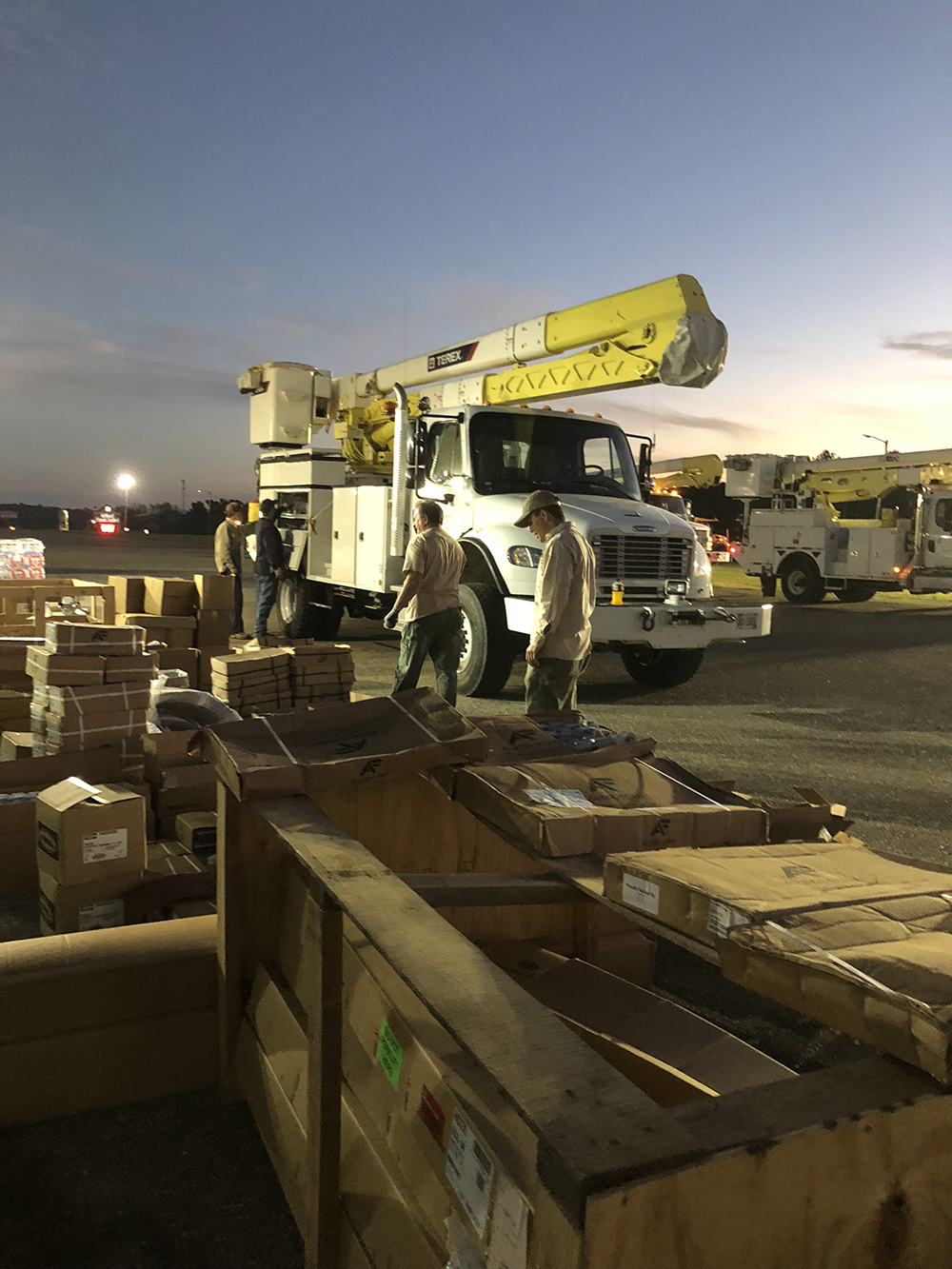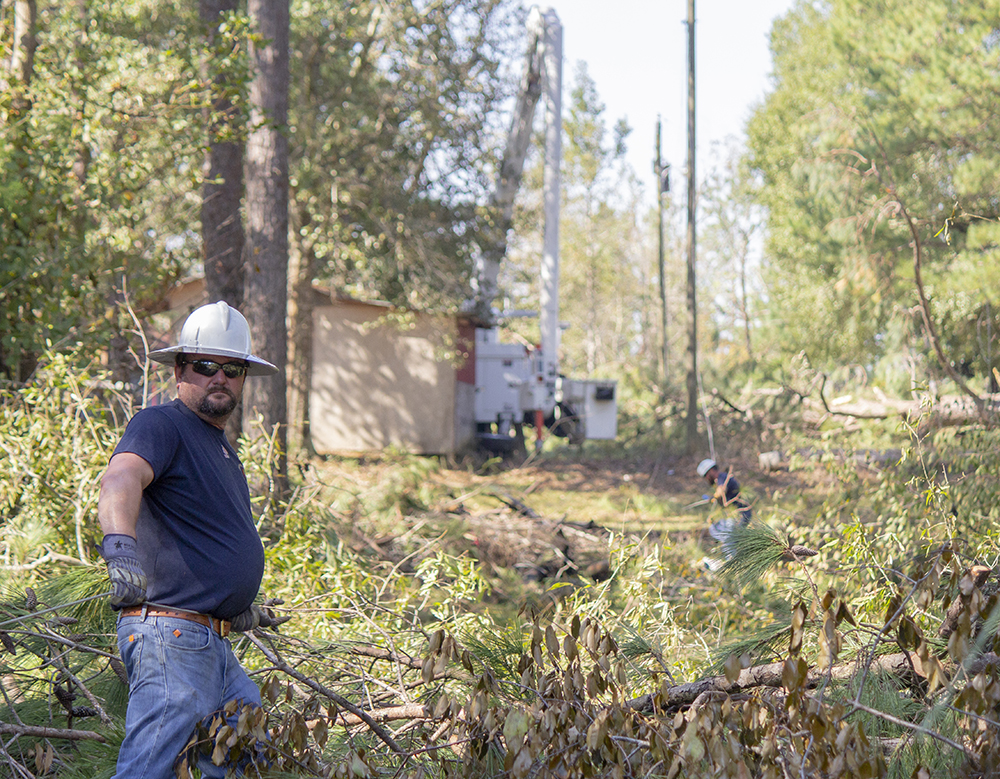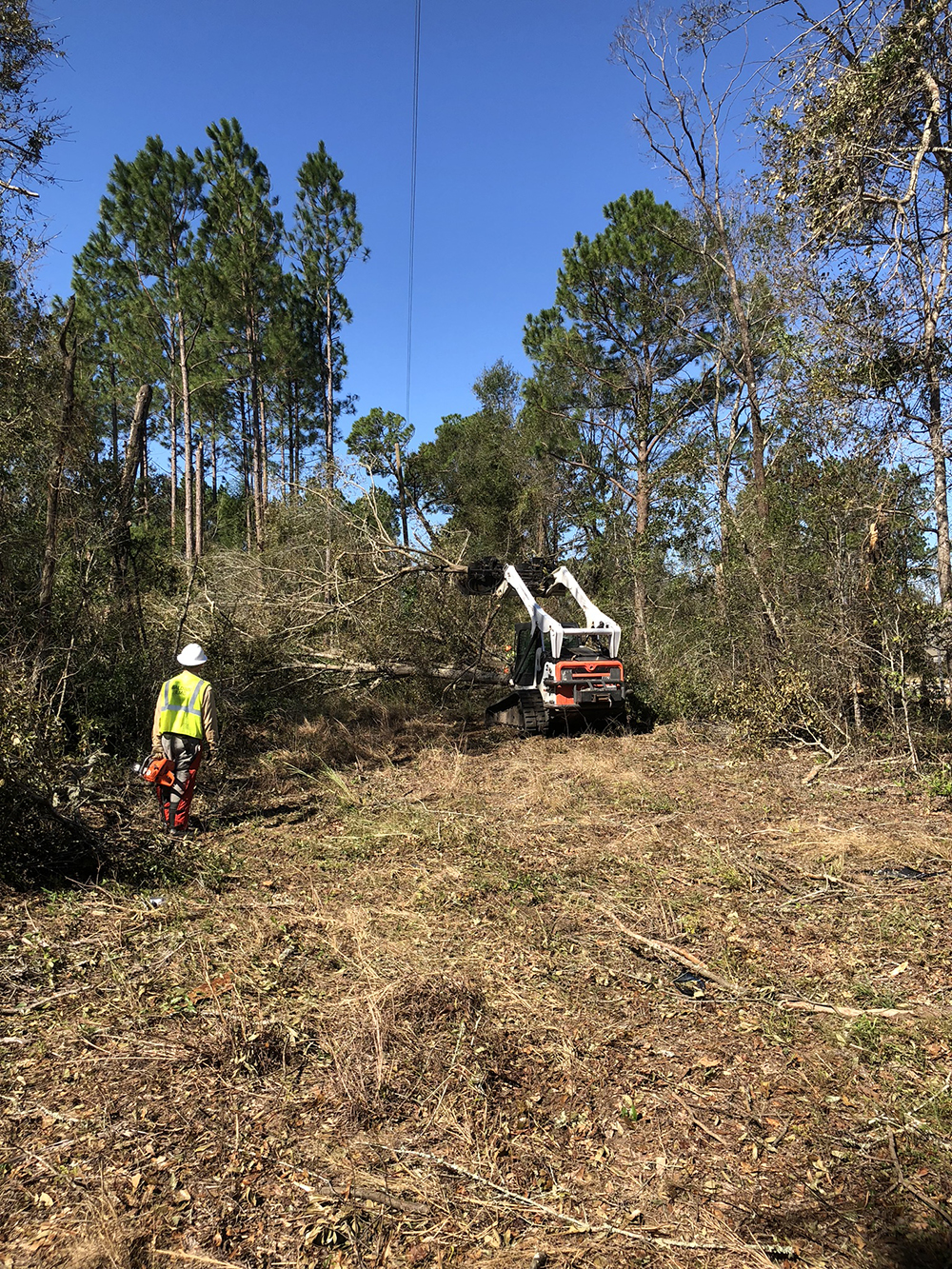By Allison Law
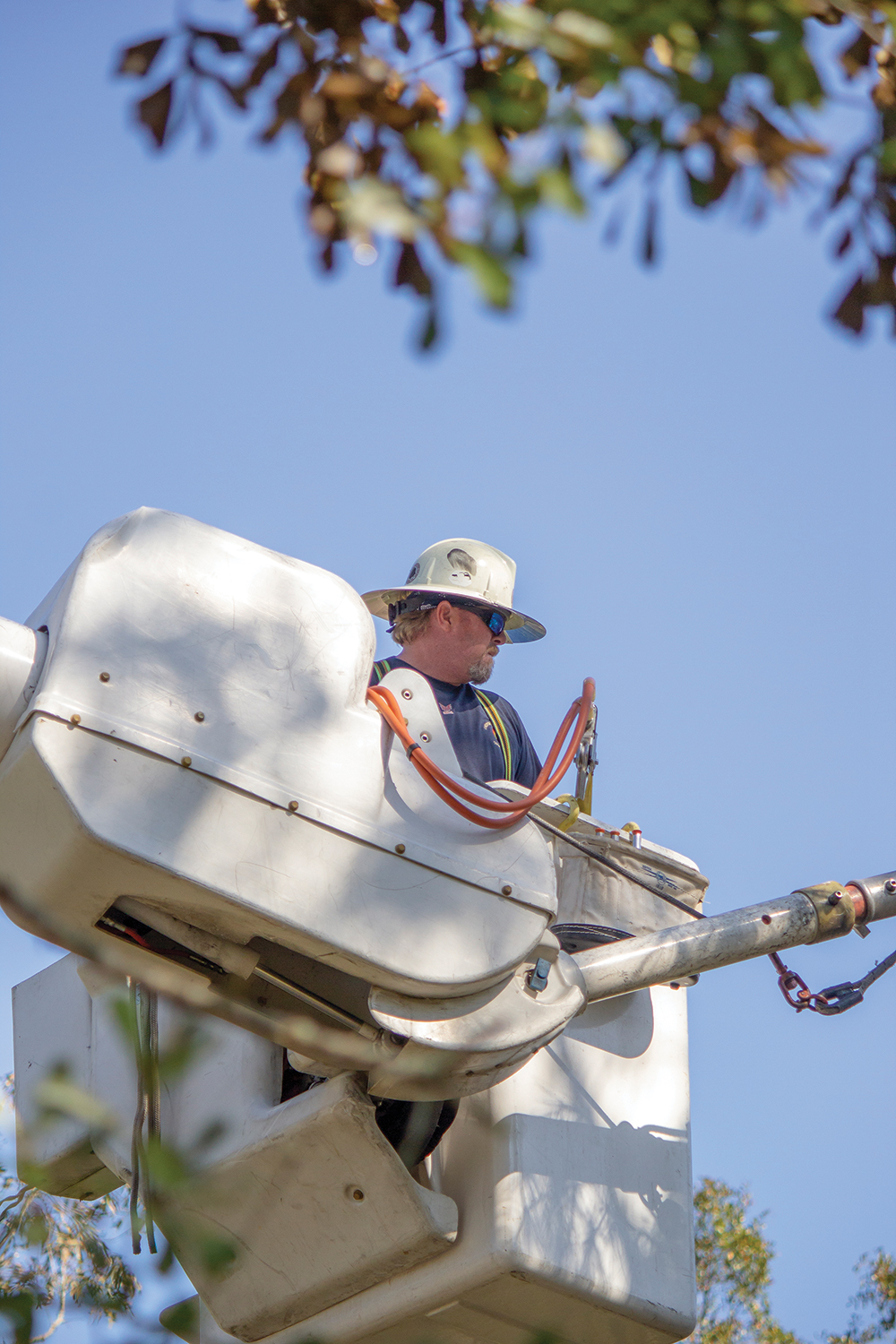
When Hurricane Michael was still brewing in the Gulf, Alabama’s rural electric cooperatives were watching carefully, and a massive plan of recovery was already taking shape long before the Category 4 storm made landfall.
From the very beginning of the rural electrification program in the 1930s, electric cooperatives have relied on other cooperatives to assist in times of disasters. But it requires a delicate balance: Storms are difficult to predict, and in the case of Michael, co-ops in the southern part of Alabama were willing to commit to sending crews to help others restore power, but had to make sure the crews weren’t needed by their own co-op first.
As the storm neared the coast and its path became more clear, the South Alabama, Pea River and Wiregrass co-ops requested aid, and the Alabama Rural Electric Association began coordinating the requests for help and the crews from sister co-ops that would respond once the storm had passed.
The storm slammed into the Florida coast and cut a swath hundreds of miles wide through the panhandle, southeast Alabama and southwest Georgia. Its devastating winds uprooted trees, damaged homes and buildings and took out power to nearly 26,000 homes and businesses served by Alabama co-ops.
Michael moved on, and while residents were left to clean up the aftermath, the co-ops went right to work to help restore power.
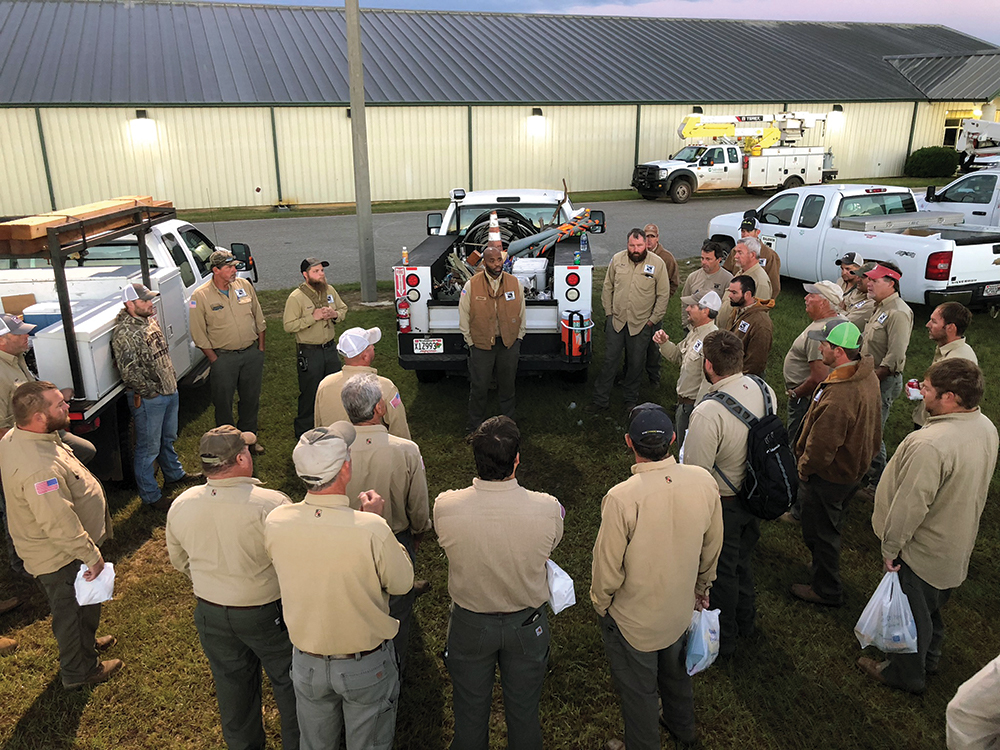
South Alabama EC was able to handle its own outages, so Alabama crews went to Pea River, headquartered in Ozark, and Wiregrass, with its main office in Hartford. Crews came from many Alabama co-ops: Baldwin, Black Warrior, Central Alabama, Cherokee, Clarke-Washington, Coosa Valley, Covington, Cullman, Dixie, Joe Wheeler, Marshall-DeKalb, North Alabama, Sand Mountain, South Alabama, Southern Pine, Tallapoosa River and Tombigbee.
For these responders, the days are long and the work is physically very hard. But helping others is just the cooperative way.
“Alabama’s cooperatives are always willing to help our fellow co-ops when there is a need,” says AREA president and CEO Fred Braswell.
Taking care of our own
The host co-ops – the ones that requested the help – have a difficult task in the wake of any storm. They have to help coordinate the visiting crews, and show the crews where the damage is. The host co-op also helps handle the logistics of housing and feeding the crews; at the same time, the employees are often dealing with issues in their own homes and neighborhoods, which may have been damaged or have no power.
For Hurricane Michael, the National Peanut Festival fairgrounds in Dothan opened its facilities to house the visiting crews, and its staff helped Jeff Whatley of AREA and Jason Saunders of Covington EC take care of the men.
The days were tiring for everyone involved, but the co-op family really is like a family, Whatley says.

“The morale is strong, it’s good,” he said while the crews were still there, “because we are still in Alabama. It is all Alabama crews working. These guys know each other from schools, and they’re seeing people they haven’t seen in years, who they know from past storms.”
Linemen are the most visible personnel during storm restoration, but they’re not the only ones working. In addition to the nearly 200 linemen who responded after Hurricane Michael, Alabama’s co-ops sent a handful of materials management staff, right-of-way crews, engineering staff and mechanics to help. And AREA sent three of its safety staff to the southeast Alabama co-ops to help coordinate the response.
The right-of-way crews are an integral part of the power restoration process. They operate specialty equipment that can move and remove debris, which makes the job of restoring power much faster and safer.
And the communities that were hit hard were giving back, too. At the Peanut Festival camp, a local church volunteered to wash the linemen’s clothes; a mobile clothes washing station was provided by the Alabama Baptist State Convention. Local restaurants prepared meals. And families of Wiregrass EC linemen helped Whatley do laundry as well.
“Everything about this storm is Alabama, 100 percent.” Whatley says.
Helping others
The hurricane season for Alabama was quiet until September. Hurricane Michael came on the heels of Hurricane Florence, which made landfall near Wilmington, N.C., on Sept. 14.
Outage numbers in co-op areas in North Carolina alone topped 300,000 after the storm came ashore.
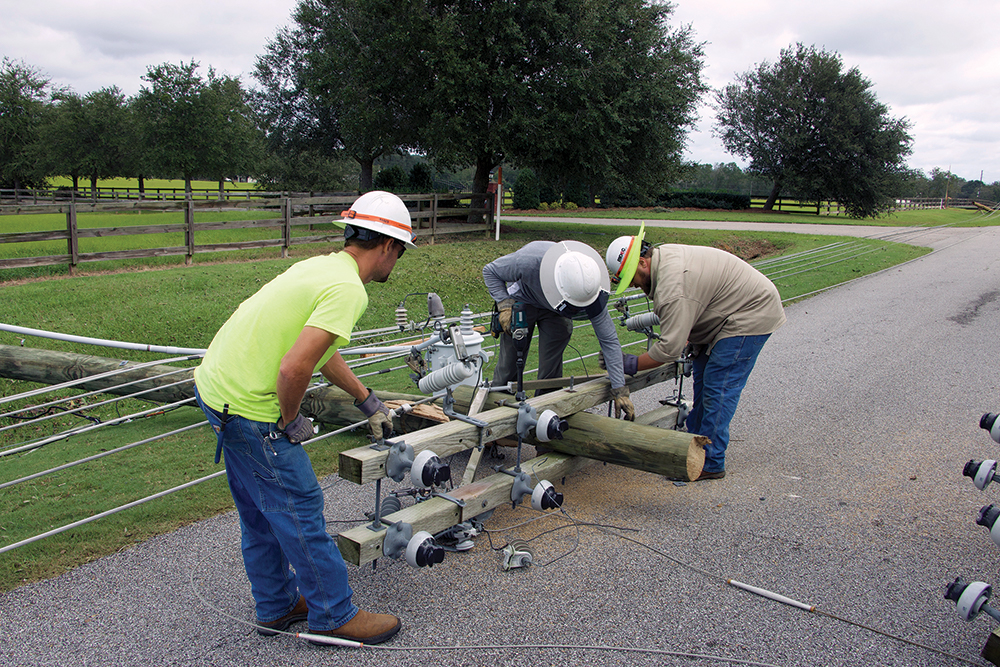
Photo by Melissa Gaines, Wiregrass EC
Rural electric cooperatives in several states, including Alabama, sent crews to both North and South Carolina to help restore power there.
Alabama’s co-ops were eager to help sister co-ops even in another state.
“The response was overwhelming,” says Eric Turner, safety specialist with AREA. “A few crews didn’t get to go, but the ones who did were eager, ready to help out and do whatever they needed to do to make people’s lives a little bit better,” Turner says.
Alabama co-ops sent 102 men in 68 trucks to seven co-ops in North Carolina.
More Photos


